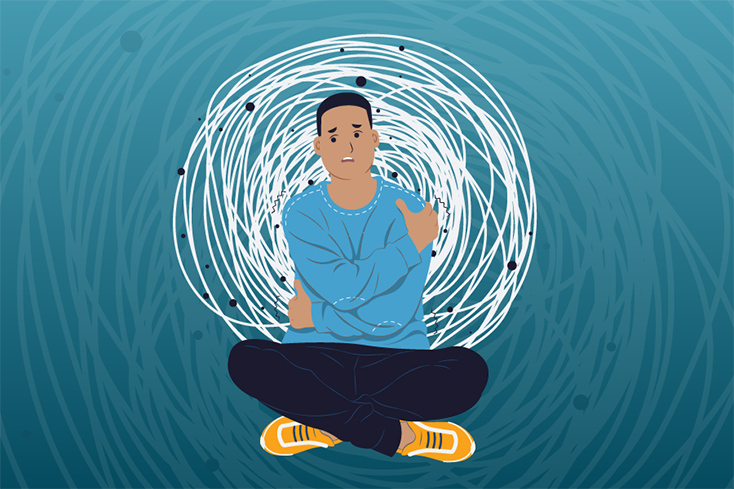
I grew up in an inner-city community in San Diego, California, called “Southeast.” This area has always been known for crime, drugs and — most notably — gangs. Despite my family’s well-intentioned efforts to keep me away from gangs, the gang culture still pulled me in.
In 7th grade, I was caught in the perfect storm. My mother and stepfather divorced; my 18-year-old cousin, who I looked up to, was being sent to prison for a life sentence due to a gang-related incident; and I was failing significantly in school. My school failures were due in large part to a learning disability I was diagnosed with a year earlier. Due to my learning challenges, I was ridiculed by my peers, which resulted in fights and eventually being suspended from school. My “homies” became the peer group that accepted me for who I was, and as the months went by, the more immersed I became in my gang.
Experiencing Trauma
The summer between 7th and 8th grade led me down a bad path. I was making poor decisions, threatening and stealing from people I did not know and engaging in fights with peers from rival gangs. One night, I finally had a wakeup call.
On the evening of September 19, 1992, I was walking home from a neighborhood park when a black Chevy Impala pulled up alongside of me. At first I thought it was someone I knew; but as the window on the passenger side window slowly rolled down, the deep knots in my stomach told me otherwise. Less than five seconds later, a hand clutching a firearm emerged from the window, pointed directly at me.
I tried to run, but I was paralyzed by the moment. All I could think of was my mother standing over my casket at my funeral. To my disbelief, the person tried pulling the trigger two times, but the bullets never left that gun. That’s when I decided I was not ready to die, and I began changing the trajectory of my life.
Processing My Mental Health After Trauma
Since that day, the trauma from that event has never left me. I live with Posttraumatic Stress (PTS). The irony is I was not diagnosed until 13 years later, when I was in the first year of my graduate program to become a therapist. For over a decade, I experienced intense flashbacks, debilitating hyperarousal and extreme avoidant behaviors. I wouldn’t go anywhere near the area where my near-death experience occurred, and I refused to confront any reminders. My relationships suffered, and my ability to trust others would often make me a recluse.
Growing up in a traditional Black family, I would not have received the professional help that I needed. My family was steadfast on dealing with any type of mental health-related issues by repressing these types of feelings or having our pastor pray over the situation.
Therapy was a game changer for me; it saved my life. For too long, I struggled with persistent anger and self-doubts because I wasn’t able to connect the dots of how trauma was impacting my life. When I began actively processing my trauma through therapy, developing and utilizing a toolbox of coping skills and establishing a network of support systems, I finally learned how to not just survive and overcome what I’d been through, but to truly thrive.
Becoming an Advocate and Fighting Stigma
Several years after completing my doctorate degree, my journey with advocacy began. I was speaking on a panel about trauma when another panelist, who was a police officer, shared his experience with “PTS” — indicating that he removes the “D” in PTSD due to negative connotations with the word “disorder.” That was a light bulb moment for me; to this day, the word disorder is no longer a part of my vocabulary.
The word disorder can make it feel like something is wrong with you. In reality, trauma reactions are normal responses to something traumatic, and what this looks like can be different for everyone. There is already enough stigma attached to mental health, and when we consider vulnerable populations such as communities of color, first responders, veterans, LGBTQIA+, youth and so on, stigma is often highly magnified.
When you add the word “disorder,” it only stigmatizes a fairly normal response to an awful event or circumstance. As a therapist, my clinical radar is more likely to go up when I have a client who has experienced something traumatic yet has no residual effects from it. Without understanding, normalizing mental health becomes so much more challenging.
Helping Others with My Story
Throughout my recovery journey, I have come to understand the power of my voice and my story. I’ve been able to help get key mental health legislation passed in the state of Nevada. I’ve published a book raising awareness about the link between mental health and being unsheltered. And through my work with NAMI, I have been able to share about my mental health journey to empower others within the Black community and beyond.
What I’ve learned along the way is that advocacy is powerful and effective, and it can take many different forms. I have discovered creative ways to facilitate mental health town hall discussions in churches and community centers to discuss mental health literacy. I have also led summits that address the unique needs of people of color. I have learned advocacy is powerful and effective. What’s most important is to meet people where they are — whether that’s in a town hall or a pew on Sunday morning or on the streets of Southeast San Diego. You never know just how many lives can be touched.
Sheldon A. Jacobs is a licensed marriage and family therapist and the Secretary for the NAMI Board of Directors. He is the author of 48: An Experiential Memoir on Homelessness, his website is www.drsheldonjacobs.com and you can follow him on Twitter and Instagram @drjacobs33

